'India is so poor that political parties will not be able to wipe out poverty from our country in another 100 years. I am of the opinion that development can come only through corporates.'
'Tomorrow, if Tata or Birla or Reliance takes up another 500 panchayats, it will boost the Indian economy also.'
Sabu M Jacob, managing director of the Kitex group whose NGO Twenty20 has just won a panchayat election in Kerala, speaks to Shobha Warrier/Rediff.com
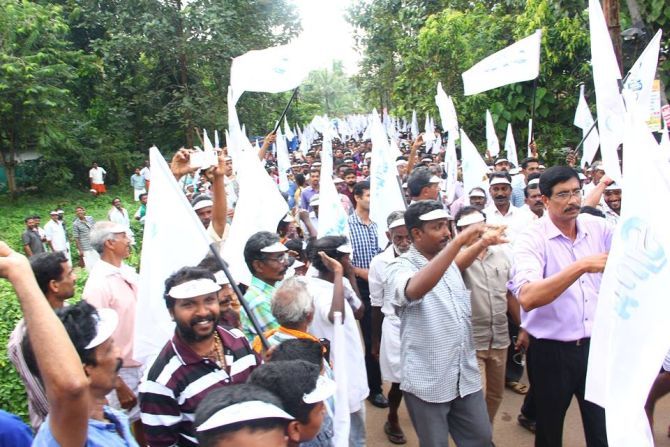
Kizhakkambalam, a small, hitherto unknown gram panchayat in Kerala's Ernakulam district, was suddenly in the national news. The reason for the attention was the local body elections in the state.
It was in Kizhakkambalam that a corporate body put up candidates in all the 19 wards under the banner Twenty20, which was a corporate social responsibility NGO floated by the Rs 1,200 crore (Rs 12 billion) Kitex group. The Kitex group has 15,000 employees and exports garments to international brands like Walmart, Jockey, Mother Care, Kohl's, ToysRUs, Gerber, etc.
Some 90.5 per cent people cast their votes in the panchayat election, and when the results were out on November 7, Twenty20 had won 17 out of 19 wards in Kizhakkambalam with a thumping majority though it faced strong opposition from both the Left Democratic Front and the ruling United Democratic Front.
 An elated Sabu M Jacob, image, left, managing director of the Kitex group and the chief coordinator of Twenty20 Kizhakkambalam, spoke to Shobha Warrier/Rediff.com about how the seemingly impossible was wrought.
An elated Sabu M Jacob, image, left, managing director of the Kitex group and the chief coordinator of Twenty20 Kizhakkambalam, spoke to Shobha Warrier/Rediff.com about how the seemingly impossible was wrought.
Twenty20 won 17 out of the 19 seats you contested. Were you expecting this kind of support from the people of Kizhakkambalam?
We have been working with the people of the 17 wards, which we won, for the last two-and-a-half years. In the two wards which we lost, we had started our work only in the last three months. The CPI (Communist Party of India) was not allowing us to work there. I am sure if we could have started our work earlier, we would have won all the 19 seats.
Here, people had only two options: The UDF and the LDF. We have been working with the people from 2013 and proved to them that we were the best. That was why people voted for us in this overwhelming manner.
Kerala has this image of not being industry-friendly. When you started Twenty20, was your intention to make people more industry-friendly?
It was not at all our intention. We started our business way back in 1968. So we have been here for almost 50 years now. As we have a very people-friendly working atmosphere, there are no unions in our company.
We have 15,000 people working in our company out of whom only 2,000 are from the local area, the rest are from various states in India like Odisha, Jharkhand, Bihar, UP, etc.
When you first started Twenty20 Kizhakkambalam, there were some other companies with you. But when you decided to stand for the elections, it was reported that the others were not very happy with the decision and opted out. Is it true?
No, it is not true. It was not the other industries that were opposed to the idea of us contesting the elections, but the politicians. They feared they would lose their importance. Only they were protesting against us.
There were others from the mining industry with us, and they were totally dependent on the panchayat, which was ruled by the UDF. When we started the movement, the panchayat gave a warning to the other industries that if they joined with us, they would have problems.
So fearing trouble they withdrew, but they were all supporting us in spirit.
A corporate fighting political parties in an election is quite unheard of. Why did you decide to fight the elections?
My father, who was the founder of the Anna Kitex group, wrote a book in 2010 that when an industry grows, the village also should grow along with it. He passed away in 2011. So, we, his sons, decided to fulfil his mission.
You started Twenty20 as a charity organisation. Did you have any plans to fight elections at that time?
It was in 2013 that we started the Twenty20 project with some other business bigwigs also joining us in this idea. We said since we were born and brought up in this village, we should do something for the village.
The ruling party, on hearing our idea, started creating problems. So, one by one, others withdrew and only two other groups remained with us.
Whatever projects we started, whether it was the water project or the road project or the housing project, the ruling panchayat opposed them. We had lots of problems and could not go ahead with anything.
The last straw was what happened last Onam. As it is our biggest festival, we constructed a 15,000 sq ft temporary shed to sell things that are needed for a household, from salt to oil to furniture to furnishing to home appliances -- all at 50 per cent price.<./p>
At 6 pm, there were at least 6,000 people inside the exhibition centre. The panchayat declared Section 144 (of the Indian Penal Code, which forbids the assembly of more than four persons) in the area and closed the centre with 4,000 people inside. We could come out only at 3 am.
The very next day we called for a meeting and decided that we would not be able to complete our mission with other political parties ruling the panchayat.
When we started Twenty20 Kizhakkambalam, our intention was to make this the model panchayat in India by 2020. India has 272,000 panchayats.
The Onam incident triggered our decision to contest the elections. Without political power, without support from the panchayat, we understood we would not be able to do anything.
Now that you have won 17 wards, what are your plans for Kizhakkambalam?
Even before we won, our plan was to make Kizhakkambalam the number one panchayat among the 272,000 panchayats in the country. Generally politicians come out with a manifesto just before the elections. Our manifesto said we would become the number one panchayat in India with good roads, proper houses with drinking water and toilets. This was what we promised when Twenty20 was formed. We are going to continue with our promises.
There are 36,000 people and 8,000 families in Kizhakkambalam. When we started Twenty20 in 2013, we found that 220 houses did not have electricity and 205 houses had no toilets. We constructed toilets for all the houses and got them electricity.
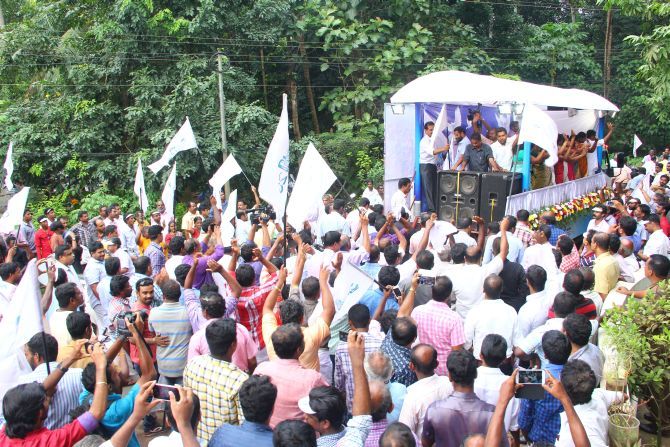
How did you choose your candidates?
We had decided that the minimum qualification of our candidates would be graduation, but we had postgraduates, people with B Ed degree and law graduates as our candidates.
Are they from the local area? Do they work for Kitex?
They are all from the local area and nobody works for Kitex. A committee selected every candidate. We have an executive board consisting of 20 people and an executive committee comprising 50 people in all the 19 wards. That means, there are 950 people under the board.
Below that is a working committee of 200 people in every ward. Roughly 4,800 people run Twenty20. They chose all the candidates.
We are going to run the panchayat in a very scientific, disciplined and very professional method, and by young educated people.
The criticism against you is that the dyeing units of Kitex are polluting the groundwater of the area, and you wanted control of the panchayat so that you would not face any problems with the dyeing units. Was that the reason why you fought the elections? How do you respond to this criticism?
When the elections came, it was the argument used by the political parties, that we wanted to start another bleaching factory in Kizhakkambalam. We started our factory in 1968 and the bleaching and garment factory in 1995. Our factories have been functioning here for the last 20 years.
Only when the elections came and when we decided to contest, did the politicians realise that it was a polluting factory.
Also, the panchayat gives only a working permit and the Pollution Control Board and the health department give the other licences. The state, and not the panchayat, controls these departments and the labour department.
The people of Kizhakkambalam just ignored the campaign against us. The people of Kerala cannot be fooled. See, Coca-Cola came and they were thrown out. We are making garments for well known companies like Walmart. Social security compliances are conducted by international agencies and we have the platinum certification. Walmart would have blacklisted us if they found that we were polluting the village.
The Communist Party says this is a way of capitalists taking control of the village and the people...
They think they are Socialists, but they are the real capitalists. They are just scared that they are losing their importance.
Do you feel others in India will take notice of your success and replicate this in other states?
I want our success to be a trendsetter. I am getting a lot of calls from all over the world. A business organisation in the US wanted to adopt 10 panchayats in Kerala, and they wanted our guidance. Other industries also want to replicate this in other places.
India is so poor that political parties will not be able to wipe out poverty from our country in another 100 years. I am of the opinion that development can come only through corporates.
Tomorrow, if Tata or Birla or Reliance takes up another 500 panchayats, it will boost the Indian economy also.
I feel our win can create a revolutionary change in India. In another five years' time, you will see such a model happening in at least 100 panchayats. I am confident about that. Our success can be an inspiration to other corporates.
The image of Kerala is that it is very difficult for industries to survive here, but you have been running an industry from 1968. How did you run an industry for so many years in an industry-unfriendly state like Kerala?
Our factory is like a 5-star hotel. We give free accommodation and free food and provide the best facilities to all our employees. That is why we never had any union issues in our factory.
I feel more than political (parties), bureaucratic and government policy issues stop industries from coming here. Even a panchayat can stop an industry from running.
It is very difficult to run an industry here. Today, Kerala is free from political and union issues, but the biggest problems are bureaucratic and transparency issues.
What will you tell those who want to come and set up industries in Kerala?
I will not tell them to come to Kerala. For example, for the last 15, 20 years, I am hearing about single window. The fact is, there are 1,000 windows and you have to waste your entire life to start an industry here.




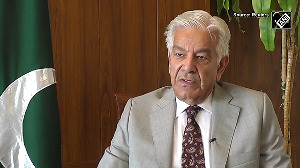
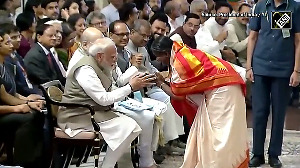
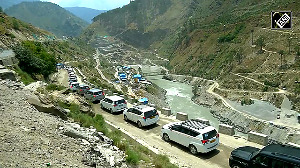
 © 2025
© 2025